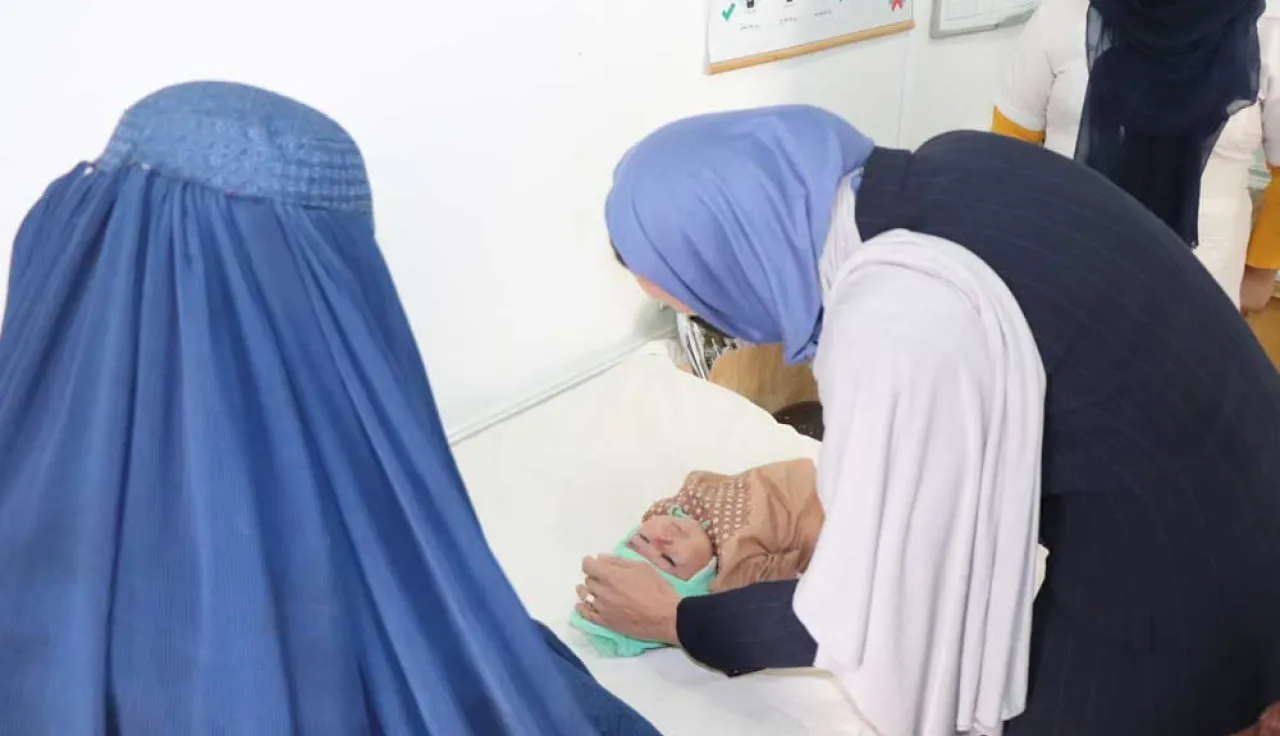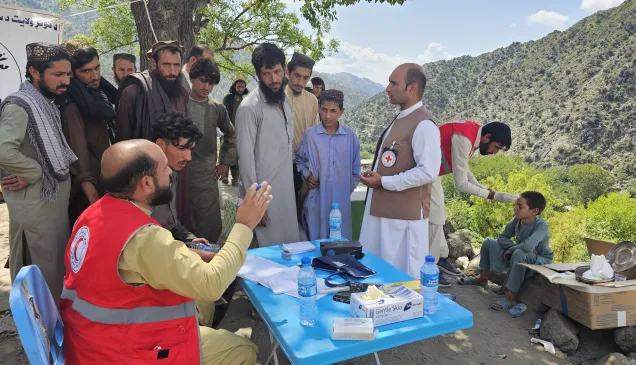Nearly a year ago when I visited Afghanistan, the medical system was about to shut down. The country's dedicated medical staff hadn't been paid in months, and the needed drugs and equipment for quality care weren't available.
Hospital administrators, doctors and nurses in Kabul and across the country were desperate. Mothers and pregnant women could not always be adequately treated in a country already facing one of the highest maternal mortality rates in the world, with 638 women dying per 100,000 live births.
To take immediate steps to save lives and keep health care facilities running, the International Committee of the Red Cross (ICRC) started supporting 33 large hospitals across the country in November 2021. This enabled Afghan medical staff to resume providing quality care. One very tangible outcome: more than 113,500 babies have been delivered in those facilities since January.
Over the last 10 months the ICRC has been paying the salaries of nearly 10,500 health professionals (around one third of whom are women); the fuel to run heating, power generators and ambulances; and for patients' food and medicines.
But it's not just the health care system that needs immediate support. While fighting across Afghanistan has decreased significantly in the last year, Afghan families' struggle to survive has not. A paralyzed banking system, as well as a lack of jobs and cash and the consequences of decades of war, have had a devastating effect on Afghan families. Economic sanctions deepened this already dire economic situation.
On the streets of Kabul we see more and more people selling their personal belongings, to raise cash to put food on the table. We see long lines of women begging for bread in front of bakeries. In rural areas, severe drought prevents farmers from growing food and generating income.
The economic impact of the Ukraine-Russia conflict on the price of basic commodities has severely harmed the purchasing power of families. Millions are facing increasing shortages of electricity and safe drinking water, which poses a risk of waterborne diseases.
Despite their best efforts, humanitarian organizations don't have the capacity to meet the growing needs of the Afghan population. Without urgent international support and investment, millions of children, women and men face immediate life-threatening issues.
With more than half the population in need of humanitarian assistance and nearly 20 million people estimated to be acutely food insecure, what future can mothers and fathers see for their children and those 100,000-plus babies born this year?
It is our moral and humanitarian obligation to ensure that the newborns of Afghanistan and their families are provided with the assistance they need. States and development agencies must return to Afghanistan and continue their support for Afghans, who are already facing an unbearable situation.
For more information, please contact:
Parwiz Ahmad Faizi, ICRC Kabul, pfaizi@icrc.org, Tel.: +93 729 110 672
Lucien Christen, ICRC Kabul, lchristen@icrc.org, Tel.: +93 72 914 0551
Anita Dullard, ICRC Bangkok, adullard@icrc.org, Tel.: +66 659 562 064
To preview and download the latest ICRC video footage in broadcast quality, go to www.icrcvideonewsroom.org
To find out what the ICRC is doing to put an end to attacks on health workers and patients, go to www.healthcareindanger.org




